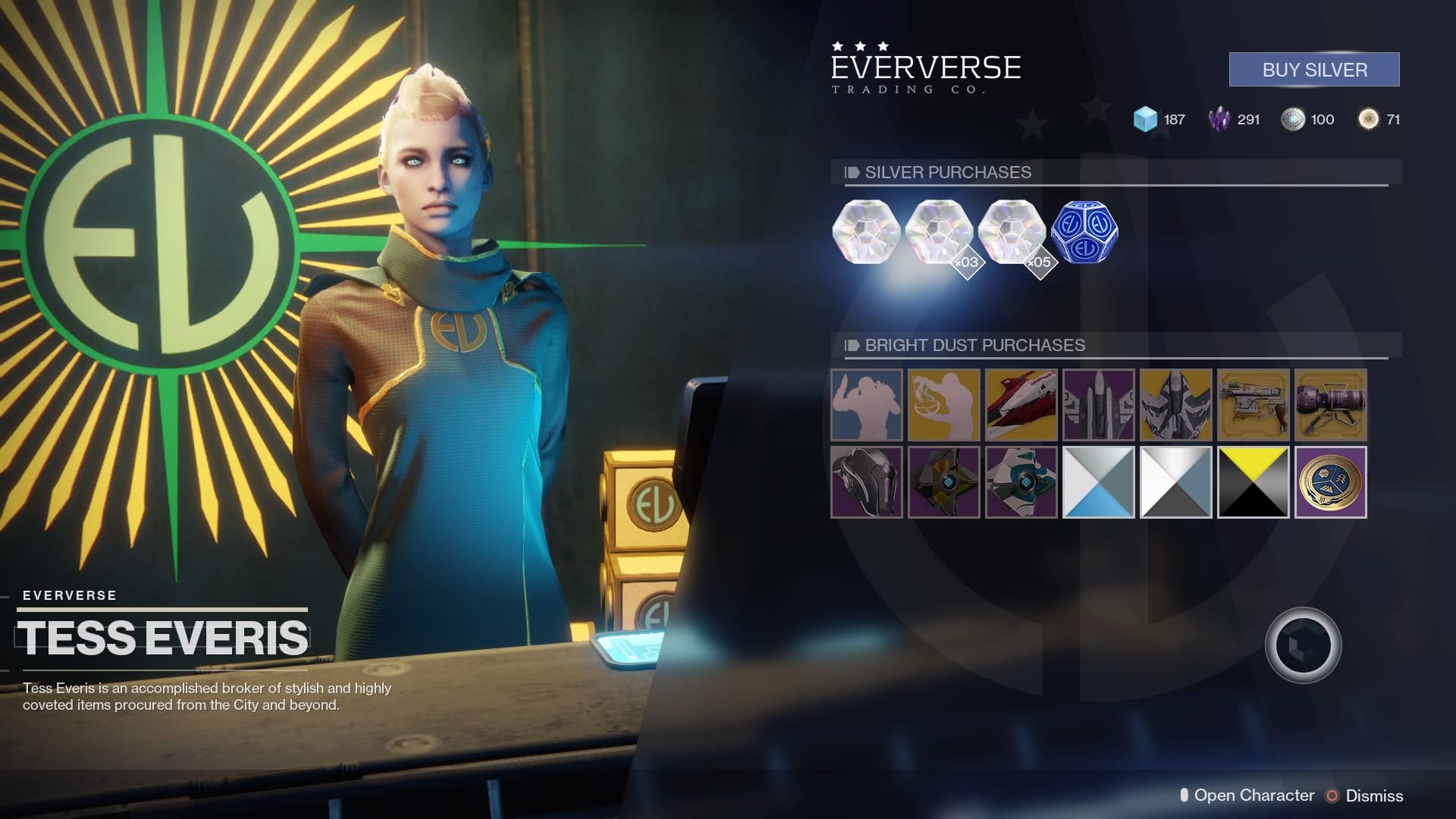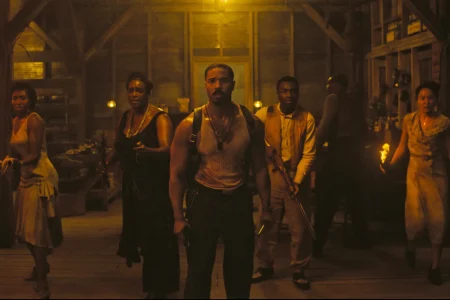Amid the Debate Over Loot Box Microtransactions and Predatory Game Design, Bungie Finds Itself in Hot Water With Destiny 2 Community
In the wake of EA’s recent microtransactions debacle with Star Wars Battlefront 2, Bungie has found itself in an uncomfortable limelight. Players have uncovered a hidden cool-down mechanic within the game’s experience point (XP) system, which is very closely tied to the Destiny 2 loot-box-based microtransaction store, the Eververse Trading Company. Now some players are arguing that the game belongs in the same conversation as Battlefront 2, claiming deceitful and predatory game design from Bungie. Armed with complaints and detailed analysis of the scaling mechanic, players took to the Bungie forums and /r/destinythegame subreddit in force, gaining enough traction to elicit a swift response from Bungie over the Thanksgiving holiday weekend.
To understand this issue, we must understand that, like most occurrences of public outcry, this has many roots. First, there’s the player perception of the ever-growing Eververse, itself. What began as a simple effort to fund the company’s “live team” through emotes in Destiny 1 (funding which has failed to deliver much of anything in the eyes of many players) has since grown into an elaborate effort that tip-toes the line of “pay for power.”
What’s the Eververse Got to Do With It?
The store, like many loot box microtransaction systems, is a bit convoluted by nature. Players can earn Bright Engrams through play (the sole purpose of XP after achieving max level). They can also use real money to pay for “silver,” a currency which can then be used to buy Bright Engrams one at a time or in packages. The engrams themselves offer semi-random rewards from a loot pool that contains primarily cosmetic items like ships and shaders. However, they also contain items called “weapon mods” which indirectly lead to power increases by allowing players to combine them into stronger mods that grant +5 power to the weapon/armor in which they’re installed.
Alternatively, players can earn “bright dust,” a second currency that works very much like “silver” but that can also be used to acquire specific items from a curated weekly list. The system appears to be designed in such a way that players can decide between purchasing Bright Engrams outright or earning the Eververse’s rewards through play, though the vast majority of players receive all or most of their Bright Engrams through the Destiny 2 XP system.

Throughout its history, the Eververse has garnered mixed responses from the game’s community, but skepticism has grown since the launch of Destiny 2, when the store was heavily reformatted around the sequel’s complete commitment to loot box mechanics. As YouTuber Datto, a large influence in the Destiny community, recently expressed, the current iteration of the Eververse has woven itself deeply into the framework of Destiny 2’s endgame, which has rubbed many fans the wrong way. This last point is of particular importance, as the endgame comprises the vast majority of gameplay experience for many players. This leads us to another root cause of player frustration: general discontent regarding the state of the endgame, including other cool-down mechanics and a stalled economy which have remained unaddressed since the game launched in early September.
Conspiracy or Malfunction? Players Uncover Massive Hidden XP Reductions In-Game
So, when Reddit user /u/lbeLIEvel uncovered a glaring discrepancy within the XP system, many members of the online Destiny 2 community were in an uproar. It appeared, at that point, that the game had some sort of hidden cool-down mechanic that prohibited players from earning large amounts of experience too quickly. Players argued that while the game allowed one to choose between purchasing or earning Bright Engrams, the game was actively inhibiting the efforts of those who took the latter option. Another user, by the name of /u/EnergiserX, took the time to conduct some thoughtful research that seemed to indicate that the hidden cool-down system could reduce XP gained by as much as 96%, despite the HUD indicating that the player was receiving the total amount of XP earned.

However (and this is the third root cause, for those keeping track), this also comes at a time when microtransactions and loot box mechanics are being intensely scrutinized within the community and, in some cases, by governing bodies who are considering the parallels between loot box economies and gambling, especially when they’re tied into real-world money and unfair or predatory tactics and game mechanics.
While it’s clear that Bungie’s Eververse is far less aggressive than EA’s approach to microtransactions with SWBF2 (the current face of predatory microtransaction tactics), the conversations happening around these discoveries indicate a clear concern by a large portion of the vocal Destiny 2 community: are the current Eververse set-up and enigmatic XP scaling mechanic indicative of a system designed to exploit addictive behavior and push players (including children, in some cases) toward using real-world money?
Bungie Speaks
On Friday, Bungie broke its silence regarding the hidden XP cool-down mechanic when they issued a brief statement which said, in part:
Currently, XP will scale up when playing longer or fixed duration activities like Crucible competitive multiplayer matches and the Leviathan Raid, and XP will scale down when playing activities that can be quickly, repeatedly chained, like grinding Public Events. We are not happy with the results, and we’ve heard the same from the community…Effective immediately, we are deactivating this system.
While this response addressed the issue of players not earning the experience they are shown, it failed to offer explanation regarding the original intent of the system. Was XP scaling an error that somehow went overlooked until the Reddit community drew attention to it three months after launch? Was the cool-down mechanic intended to prevent players from earning Bright Engrams too quickly, thus nudging them toward purchasing the engrams through real-world money at the Eververse? (Root cause number four: Bungie’s continuous lack of transparency remains an on-going source of frustration for players seeking changes to the game’s meta.) There are no concrete answers, yet, but if the relationship between the scaling system and the Eververse is proven to be true, then Bungie may very well find itself in the greater conversation that has currently enveloped EA and drawn negative attention from consumers and law makers around the world.
Naturally, Not Everyone Agrees
Let’s be clear: not everyone thinks it’s a big deal. Many members of the greater gaming community believe that microtransactions, when presented as optional purchases that don’t harm other players’ experience, are a fantastic way for developers and publishers to recoup massive development costs without raising game prices. Systems such as the Eververse, then, are a means to that end, so long as they are implemented with discretion and fairness.
To that end, some players within the Destiny community argue that the rewards from Bright Engrams—again, the sole purpose of endgame XP—are plentiful enough as it is. While some items within the Eververse do offer indirect advantages to the purchaser through weapon mods, they are negligible in any practical sense. (If you combine enough weapon mods from the Eververse to make legendary mods for all your gear, we’re talking about a power increase of roughly 1%, and that only pertains to PVE content.)
From this perspective, the Occam’s Razor approach to Destiny 2’s hidden XP scaling is far more likely to reveal a broken mechanic not functioning as intended, rather than a deliberate attempt to mislead players and push them toward spending additional money. Additionally, the diverse root causes of player frustration leading up to these discoveries suggest that perhaps this outcry is less of a singular, catastrophic offense against the players, and more of a convenient, albeit unfortunate, outlet for them to express mounting discontent at a developer that just can’t seem to get it right.
Bungie Game Director Luke Smith has promised to answer questions this week that players have been asking since launch. Perhaps we will learn more about what happened, then. Given the community’s sensitivity toward loot box microtransactions, and the relationship between Destiny 2’s endgame XP and Eververse, it’s likely that we have not heard the end of this controversy.
Geron is a freelance journalist currently holed up in the middle of Alaska. He is in love with gaming both for its potential as a medium in the modern world and its simpler role as an endlessly entertaining past time. When he isn't gaming or writing about games, he can usually be found singing loudly to his children or complaining about the cold.
Twitter: @lowsodiumgamer










